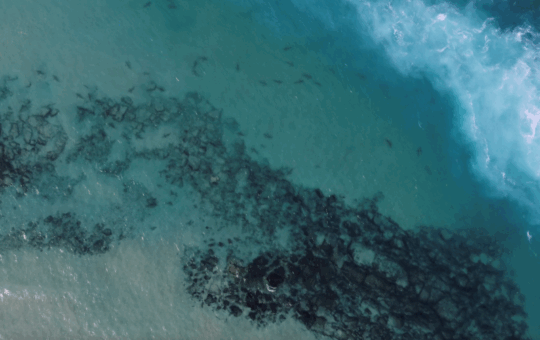
Examining the Impact of Human-Influenced Shark Behavior on Marine Safety
Recent research has shed light on how human activities, particularly feeding sharks with food scraps, can alter natural shark behaviors and increase the risk of rare but serious incidents. The study, conducted by marine biologists from the University of Exeter, highlights the significance of understanding and managing shark interactions to ensure safety for both humans and marine life.
Shark Behavior and Human Interaction: What Researchers Have Discovered
Sharks are often misunderstood creatures, primarily due to sensationalized media reports of attacks. However, most species are naturally cautious and avoid human contact. The recent case of a fatal shark attack off the coast of Israel aimed to clarify how human actions can inadvertently escalate the danger. The event was linked to “begging behavior,” a term used to describe sharks approaching humans in hopes of food, which is stimulated by artificial feeding practices.
In the Israeli waters near Hadera, researchers observed that dusky sharks, usually feeding on small fish and crustaceans, displayed unusual behavior. These sharks had been gathering around waters heated and enriched by effluent from a power station, where tourists and local fishermen often feed them scraps. This consistent feeding created a food-conditioned response, causing sharks to associate humans with food sources—a dangerous misconception that can lead to increased proximity and potential attacks.
The Mechanisms Behind Begging Behavior in Sharks
Begging behavior in sharks is a form of conditioning where sharks learn to associate human presence with food. This phenomenon is similar to the well-documented provisioning effects seen in terrestrial animals. The sharks in Hadera, attracted by the warmth of discharged water and the food scraps, developed a tendency to approach humans directly, often in a quest for food. This breaching of their natural caution can become fatal if the sharks perceive humans as food, especially if compounded by other factors such as electromagnetic signals from cameras or the smell of blood.
Implications for Marine Tourism and Shark Conservation
The findings from the University of Exeter emphasize the need for strict regulation of human activities that influence shark behavior. When properly managed, shark tourism can boost local economies and foster positive perceptions of these animals. However, unregulated feeding and unsafe interactions can result in tragic incidents, which in turn threaten shark populations through unnecessary culls or fishing restrictions.
Kristian Parton, a marine biologist involved in the research, notes that regulated and monitored shark provisioning can be beneficial. Responsible ecotourism practices allow people to observe sharks safely while minimizing risks. It also helps dispel myths that sharks are inherently aggressive toward humans, fostering coexistence based on understanding.
Strategies to Mitigate Risks
- Complete bans on artificial feeding, including providing food scraps to sharks.
- Enforcement of regulations against spearfishing and other practices that stimulate predatory instincts.
- Public education campaigns discouraging unsafe interactions with sharks.
- Monitoring and regulating shark habitats to prevent habituation to human presence.
The Role of Education and Policy in Reducing Shark Attack Incidents
Public awareness is crucial in reducing the occurrence of shark attacks linked to human behavior. Educating divers, snorkelers, and coastal communities about the dangers of artificial feeding and close encounters can prevent dangerous situations from arising. Policymakers must also enact and uphold laws that regulate shark interactions and protect marine ecosystems.
Looking Ahead: Coexistence Through Scientific Understanding
Understanding the nuances of shark behavior, especially how human actions influence these animals, is essential for fostering coexistence. The research conducted by the University of Exeter demonstrates the importance of integrating scientific insights into management practices. By reducing unnecessary provocations and respecting shark habitats, we can enjoy the benefits of marine biodiversity without risking human safety.
If you’re interested in learning more about marine biology and conservation, consider exploring programs at the University of Exeter. Courses and research opportunities offer in-depth knowledge about marine ecosystems and ways to protect these vital species.
Conclusion: Promoting Safe and Responsible Interactions with Sharks
While sharks play a crucial role in healthy marine environments, human activities such as artificial feeding can distort their natural behaviors and increase the likelihood of contact. The case from Israel serves as a stark reminder of the consequences of disrupting marine predators’ instincts. Responsible management, public education, and adherence to conservation policies are vital in preventing future incidents. Promoting awareness about shark ecology not only helps protect human lives but also preserves the integrity of our oceans.
For those passionate about marine conservation or seeking to pursue a career in marine biology, the University of Exeter offers comprehensive programs that delve into these critical issues. Learn more about their offerings and become part of the solution to sustainable ocean stewardship.

